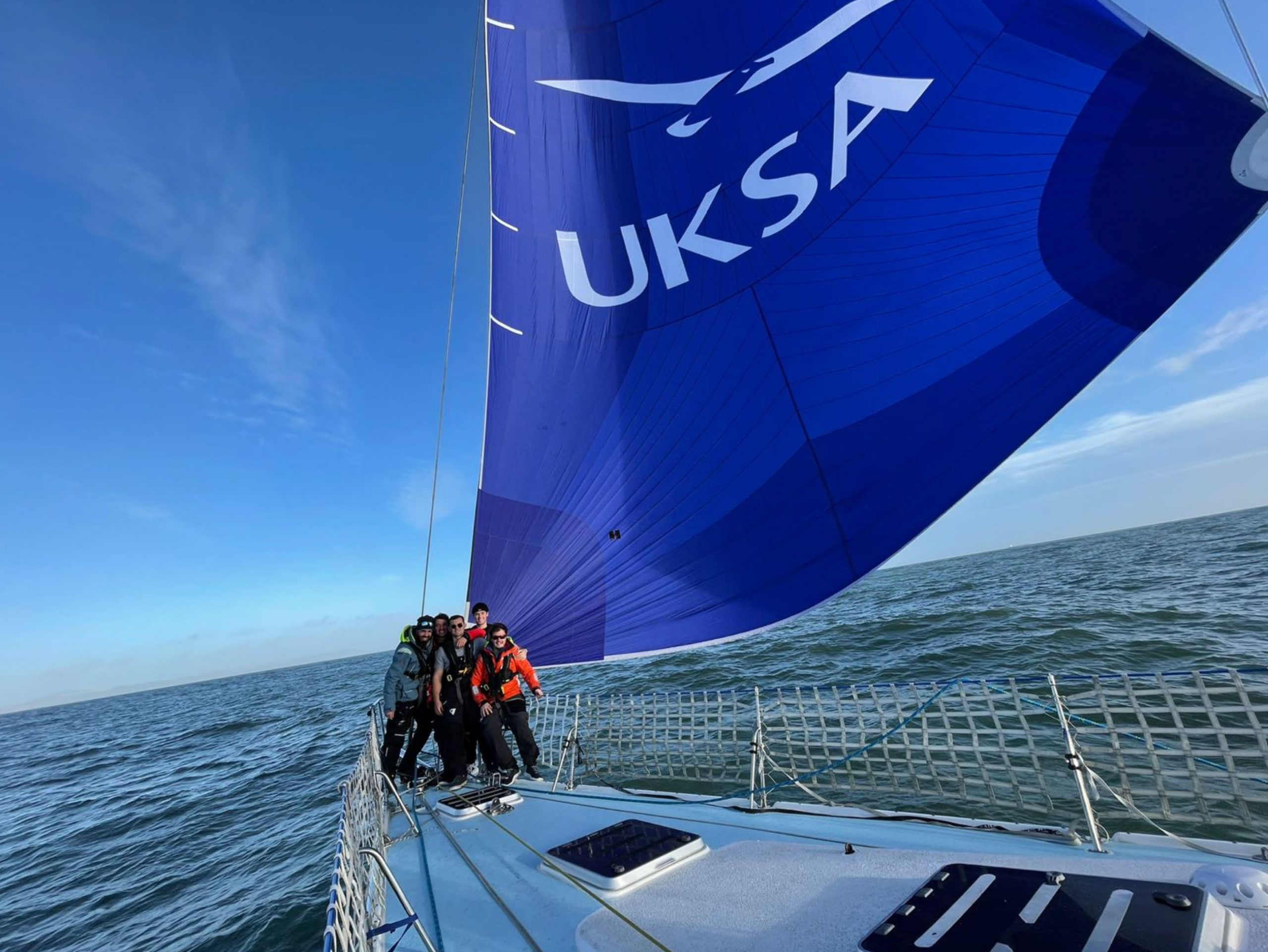
George Hitchcock
All the instructors are happy to go the extra mile if you show the interest and work ethic.


I must start with an acknowledgement of my gratitude to Noel Lister and the Noel Lister Memorial Fund, without whom my experiences of the last four months would not have been possible. I would also like to thank the staff and instructors at UKSA for providing such a high quality and enjoyable environment in which to learn.
Throughout the course of the last four months, I have been lucky enough to venture across the English Channel four times, view the Isles of Scilly, and being based in Cowes, use the Solent as a training ground to gain valuable experience, log the necessary miles and build the skills required to undertake the RYA Yachtmaster Offshore practical exam.
My previous experience of sailing started out with dinghies. I gained my RYA Dinghy Instructor certificate with Orford Sailing Club in Suffolk and having spent a few summers teaching in the River Alde, I found myself keen to explore further and developed an interest in cruising. I owned a small 25ft Sadler with my brothers which we sailed, exploring the estuaries along the Suffolk coast such as the River Orwell and River Deben. It’s safe to say I cemented the fondness of a lifelong activity and wanted to develop my skills further.
A particular skill I enjoyed learning was the art of ‘blind navigation’: using only the boat’s speed through water, compass and depth reader, along with a paper chart. Using these traditional tools, I was able to locate a designated navigational mark some two or three miles away from my current position. It was a fascinating task that required accuracy of tidal vectors and the current height of tide to find contour lines along the seabed. To make things more interesting my helm would shout down from the cockpit, ‘one long blast on the starboard-bow!’ as if mimicking a scenario of poor visibility. I would then request a reduction in boat speed only to continue when the identified danger had passed. Upon locating the navigational mark as planned, I came up on deck to see a 400 meter container ship making its way to Southampton that we had let pass by.
My first crossing of the channel was a rather large sense of achievement. We departed from Cowes for Cherbourg, France. I was acting as crew for the passage, and we shared watch as we sailed through the night. It was my first experience of being out of view from land. We sailed with a consistent westerly wind all the way, having departed a day later than initially planned due to strong winds, which were evident by the three meter swell we encountered for the duration of the trip. Whilst this did add to the excitement, it also sadly resulted in our supper bouncing off the gimbled cooker and onto the floor!
For the journey back, we aimed for Poole. The wind had veered to become north westerly. I was Skipper for the passage and ordered a close-hauled course, to make as much ground as possible before bearing away slightly once certain we were clear of the strong tidal races at Anvil Point, near the entrance to Poole. I also had the responsibility of monitoring the busy Traffic Separation Scheme to ensure a safe route through the commercial traffic. Some of which sped along at over 20 knots! It felt rather like a game of chess, altering our course by a few degrees at a time and checking the effect of this on our closest point of approach with the oncoming traffic.
I think my favourite segment of my training had to be a 9-day trip on UKSA’s Farr 65ft. We clocked 851 miles in that time, visiting the Isles of Scilly where we had a friendly aquatic escort of a pod of dolphins for many hours, riding in our bow waves. We then made a quick turn back as the forecast indicated a low-pressure system fast inbound, so thought best not to be caught sitting in the Atlantic. We still had some 80 miles until reaching the safety of the Solent, so we prepared the storm jib and trysail, as gale force winds were on the way. The storm certainly constituted as ‘violent’ with wind speeds reaching 56 knots on occasion (Force 11). The storm passed after about 12 hours, and as the winds and seas calmed, we were able to change our sail plan and hoisted the spinnaker.
By the end of the training, I had logged an additional 2,578 miles, completed my Yachtmaster Theory exam and visited 20 different harbours…which certainly honed my pilotage planning ability! I was certainly well equipped to pass the final practical exam. It was a truly memorable experience, and I can’t recommend it enough to anyone else wishing to excel their skippering ability. I have secured a job as a flotilla skipper in Greece beginning next month! Thank you very much to UKSA and the Noel Lister Memorial Fund which has enabled me to train for a career in the maritime industry, doing what I love.